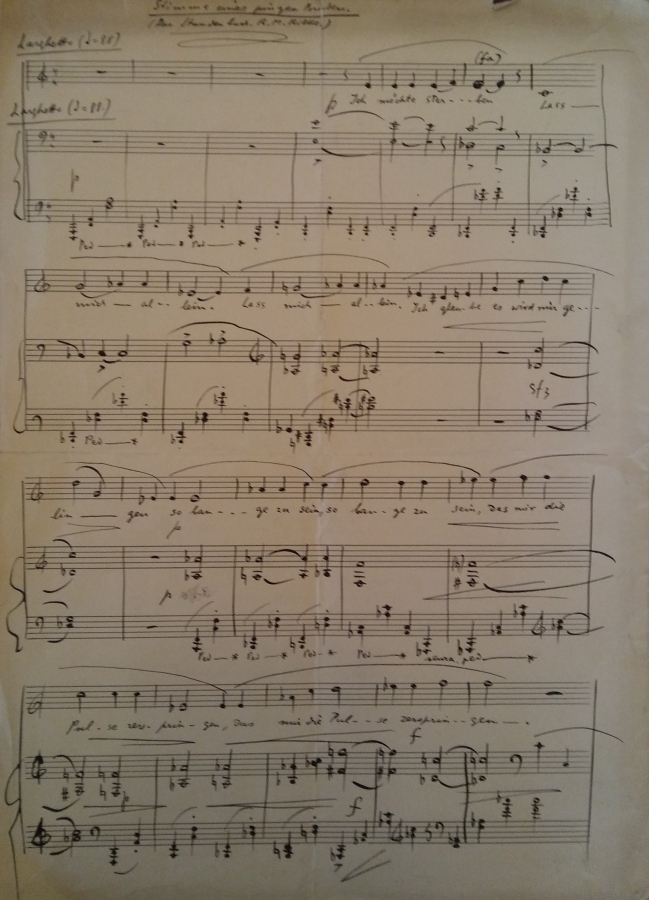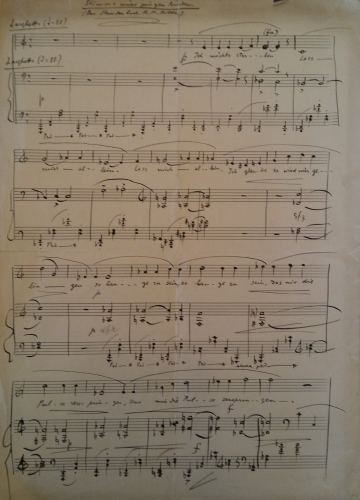
Stimme eines jungen Bruders for soprano and piano to words by Rainer Maria Rilke (1938)
dedication: –
duration: ca 3’
manuscript: Zygmunt Mycielski Archive, Manuscript Department, National Library, no. IV 14313 akc. 020704
premiere: –
From Rainer Maria Rilke’s poem the composer selected the last stanza beginning with a dramatic confession:
Ich möchte sterben. Lass mich allein [I would like to die. Leave me alone].
This is reflected in the symbolism-imbued melodic line, which begins with a minor second introduced after several repetitions of the initial note. This phrase resembles Baroque rhetorical figures associated with negativity (passus duriusculus). The melodic line, lacking a clear tonal centre of gravity, meanders, only to return in the coda to the initial motif, complemented in the piano part by a “dark” B flat minor triad. Delivered in an even crotchet continuo, the accompaniment brings to mind the marching rhythm of the mournful Lamento di Tristano, composed a year earlier.
Years later the composer asked his friend Jarosław Iwaszkiewicz to translate Rilke’s text into Polish. Mycielski intended to add this fragment to the chamber version of Brzezina:
Perhaps you could translate for me very beautifully this poem by Rilke, which has haunted me for 25 years [...] In 1938, when I already knew – that all this was heading ‘for the end’ – I wrote a song to it, badly done but with a good rhythm (‘walking’ – Larghetto), I would like to finish it – perhaps write it for a quintet, with your Brzezina.
(Zygmunt Mycielski’s letter to Jarosław Iwaszkiewicz of 2 December 1958, quoted after Radosław Romaniuk (ed.), “Zygmunt Mycielski. Listy do Jarosława Iwaszkiewicza”, Kamerton 2012 no. 56, p. 24). In the end Iwaszkiewicz did not translate Rilke’s poem, nor did Mycielski reconstruct the song written in 1938.
